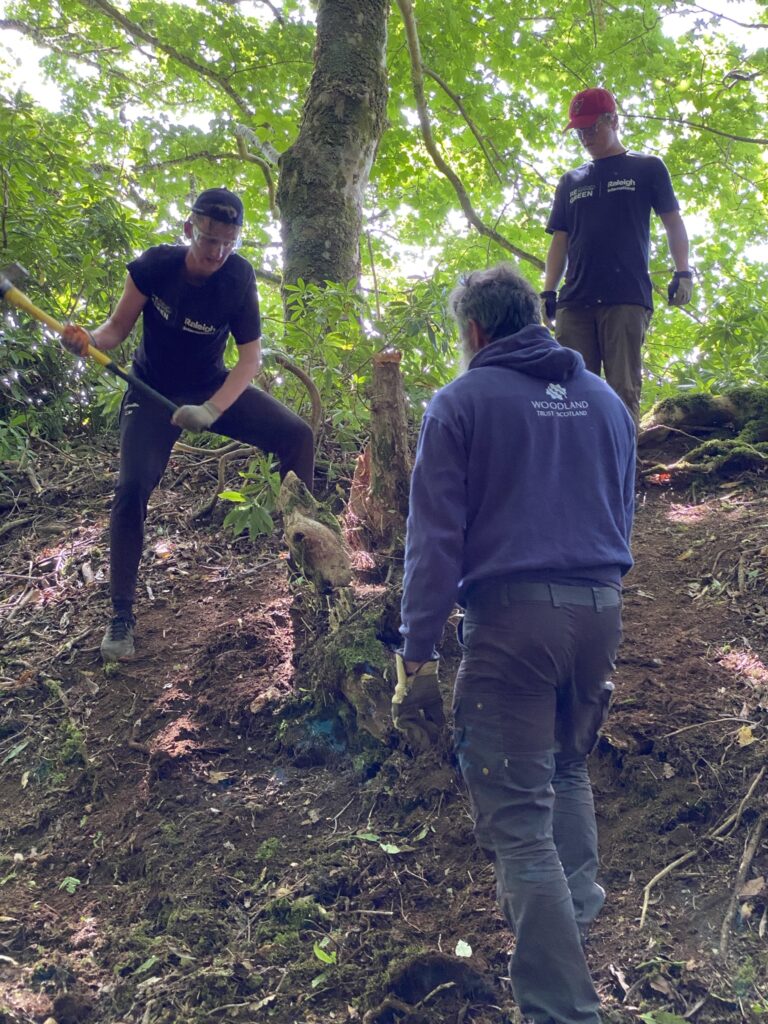Eco Crisis: UK second-worst in the world for plastic waste

It’s been revealed that the UK is the second-worst place in the world for producing plastic waste, with the US being the only other place in the world using more plastic annually. Now, environmental campaigners are calling on the nation to rally together and contribute to the Big Plastic Count Survey, which will reveal the true extent to which the UK creates plastic waste by having households track how much plastic waste they produce. Everyone who signs up to participate will receive a pack explaining how to count the plastics they use, broken down into 19 categories, which they’ll tally up to reveal the types of plastic waste before putting it in the bin or the recycling. The results of the count will act as evidence to provide to the government, who are being called on by environmental organisations Greenpeace and Everyday Plastic to set targets for reducing plastic waste by 50% by 2025 to combat the issue at hand.
In a new unique social study, landmark research from the engineers of Britain’s most recyclable vacuum cleaner, Lupe Technology, shows that Brits are prioritising purchasing sustainable products to help combat their plastic consumption and reduce their carbon footprint. Because of this, Brits are turning their backs on mainstream manufacturers in a bid to support sustainable products, finding that almost 26 million of us agree that domestic appliance brands do not do enough to educate the public on how sustainable their products are.
Lupe Technology, an innovative British tech start-up that is helping its customers combat their appliance waste, discovered in 2021 that white goods make up almost half of all electrical goods thrown away. The data showed that the average Brit goes through 15 vacuum cleaners (58,635,000 units) in their lifetime. Their new analysis has found that 38% of Brits say they don’t trust big brands to provide truly sustainable products, with a further 31% (14,007,000) saying that they are no longer looking to purchase from mainstream brands whose products are unethical and or wasteful.
Key Stats*
38% (17,053,000) agree that they will purchase from less established brands in order to use domestic appliances that are friendlier to the environment
38% (17,511,000) agree they don’t trust big brands to give them truly sustainable products
31% (14,007,000) agree that they are no longer looking to purchase from mainstream brands whose products are unethical and/ or wasteful
33% (14,347,000) agree that they are now buying sustainable domestic appliances as a priority to combat plastic waste and their general carbon footprint
60% (25,977,000) agree that domestic appliance brands do not do enough to educate the public on how sustainable their products are
40% (18,779,000) agree they will pay more to purchase truly sustainable products in my house
18% (7,644,000) agree that the majority of domestic appliances in their home are from smaller, home-grown businesses more so now than they were 10 years ago
*(nationally representative research carried out across a body of 2096 respondents, in full compliance with the British Polling Council Guidelines)
Why SME innovation may be the key to a greener existence
Lupe Technology is well aware of the cost that comes from creating new products. Production of plastics contributed to more than 850 million metric tonnes of greenhouse gases to the atmosphere in 2019, with reports showing that white goods make up almost half of all electrical goods thrown away. In 2021, Lupe Technology commissioned national research to find out just how much damage the domestic appliances sector contributes to the built-to-break cycle. The data found that 1 in 10 Brits have been through a minimum of 15 vacuum cleaners in their lifetime, which amounts to a staggering 58,635,000 units.
The Pure Cordless, Lupe Technology’s upright vacuum cleaner model, is crafted from recyclable plastic and delivers high performance whilst far outliving the expected shelf-life for typical household appliances. Other vacuum cleaners may use thinner plastic which is welded together instead of using bolts to reduce price and weight, but these are then more easily broken and irreplaceable, forcing consumers to throw the model away and purchase even more single use plastic. Lupe’s Pure Cordless vacuum, however, is made from durable plastic which is bolted together to make the unit as built-to-last as possible. In the unlikely event a part does break, each individual small part of Lupe’s product has been designed to be fully removable, recyclable, and replaceable. Lupe Technology is also very aware of the carbon footprint mass consumer household appliances have and are the only vacuum cleaner brand committed to offsetting the carbon for each model sold, with the aim of becoming carbon negative during 2023.
Pablo Montero, Co-Founder of Lupe Technology, comments on the culture of domestic appliances that are built to break:
“The public conscience of climate change, pollution and excess household wastage has undoubtedly increased in recent years and has motivated consumers worldwide to seek more sustainable and ethical products. Yet despite all our good intentions, we are hamstrung by a trend of built-to-break gadgets and household appliances, which is contributing to an appalling amount of plastic pollution and electrical wastage in Britain.
“The Pure Cordless is the domestic appliance designed not just to shake-up the vacuum market but the entire home technology arena. We have strived to make a product as reliable and long-lasting as possible and hope consumers understand our mission to make technology stand the test of time.”




